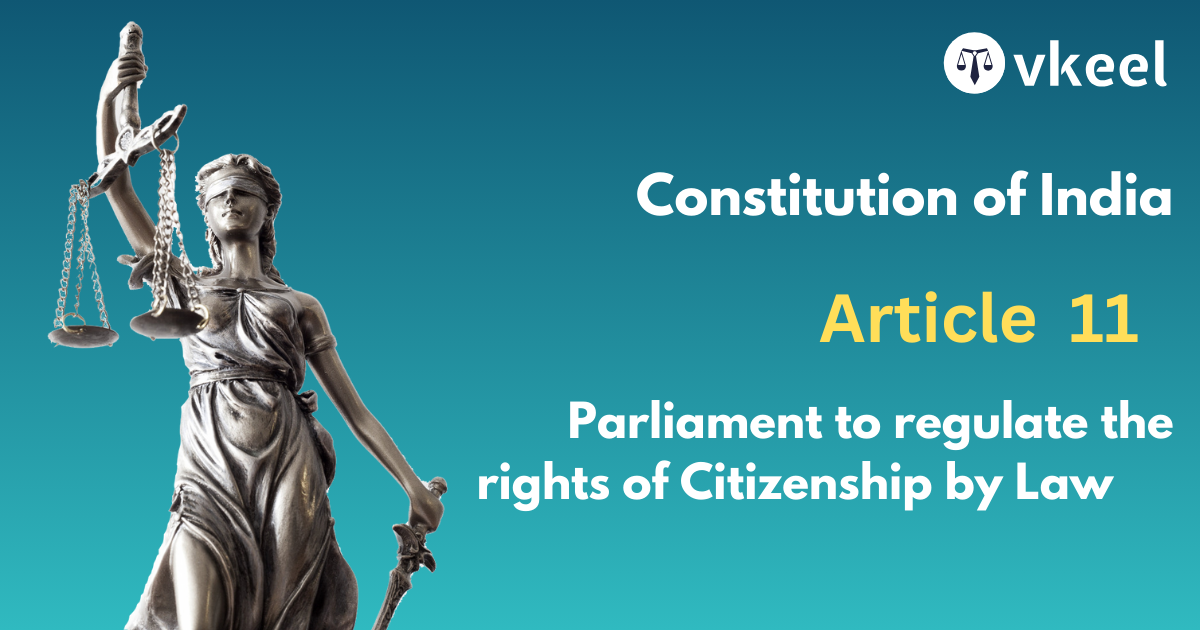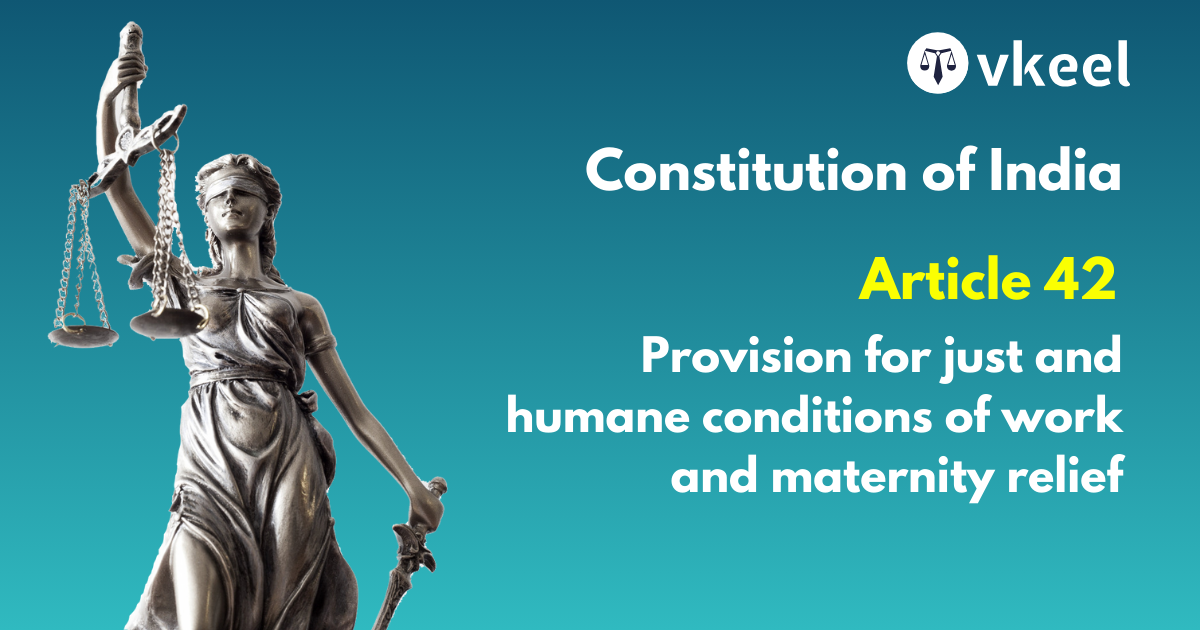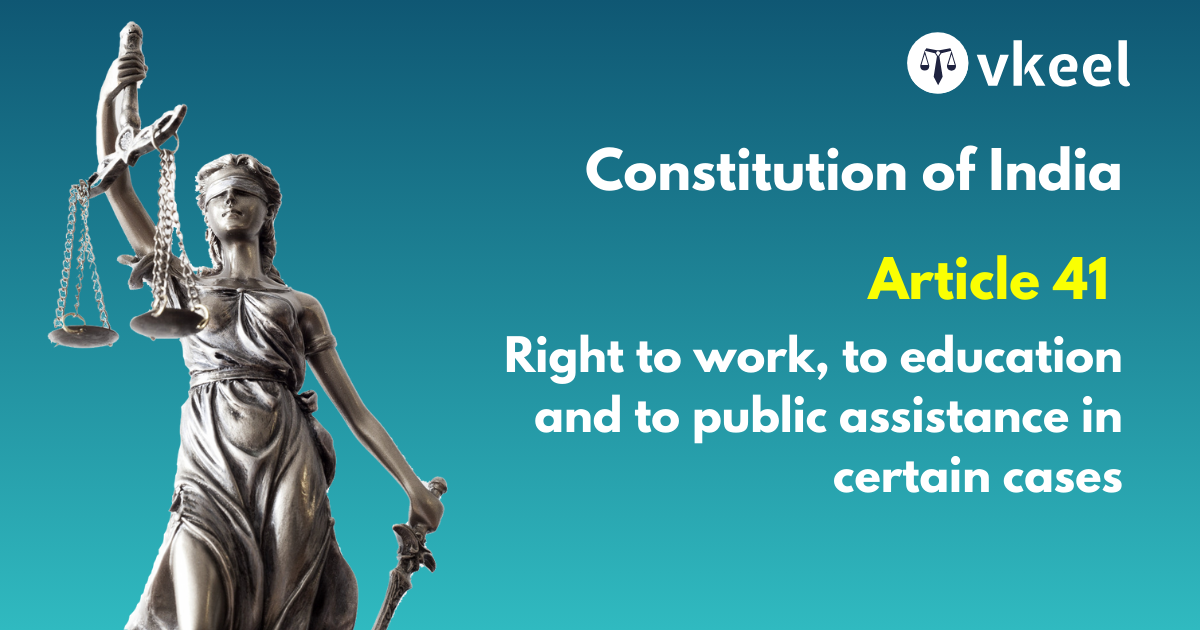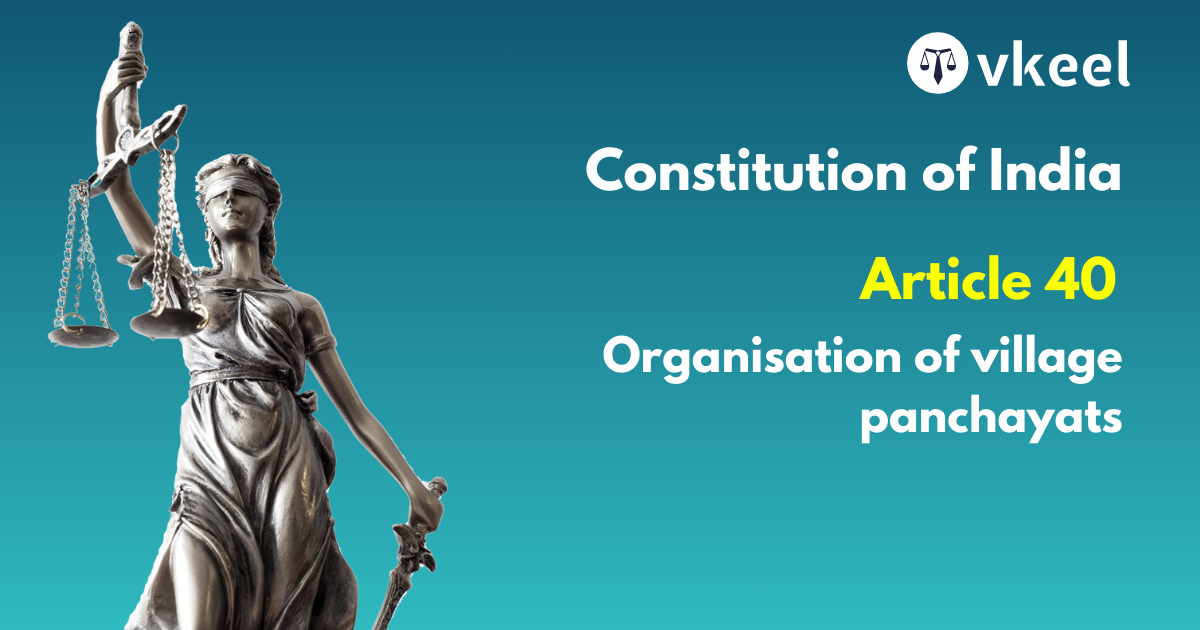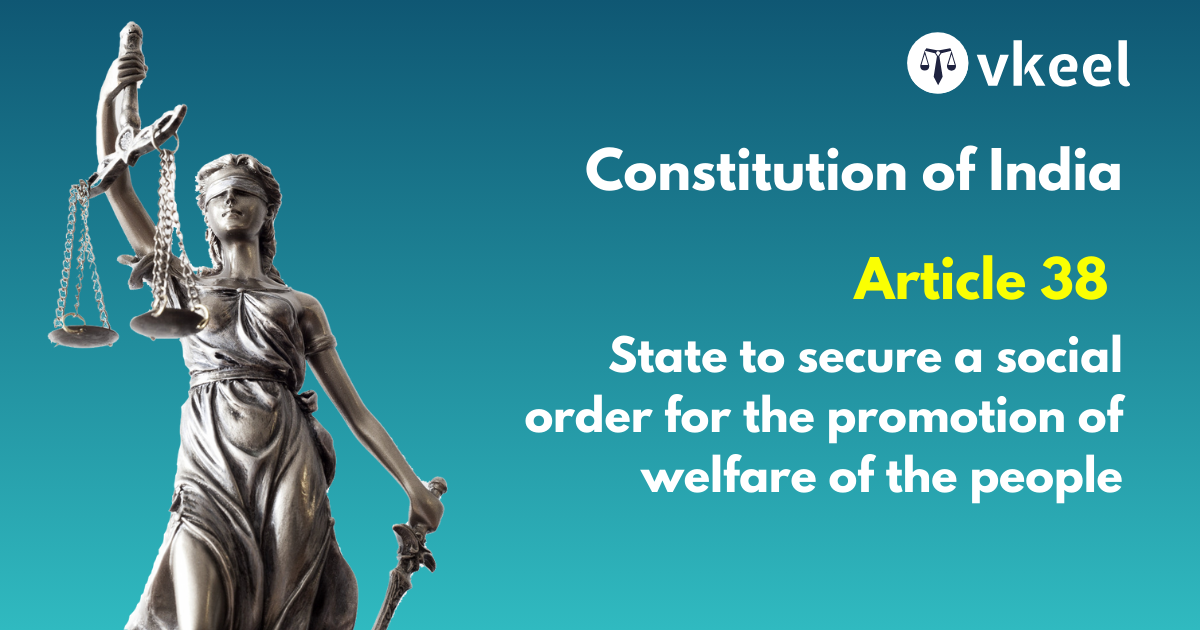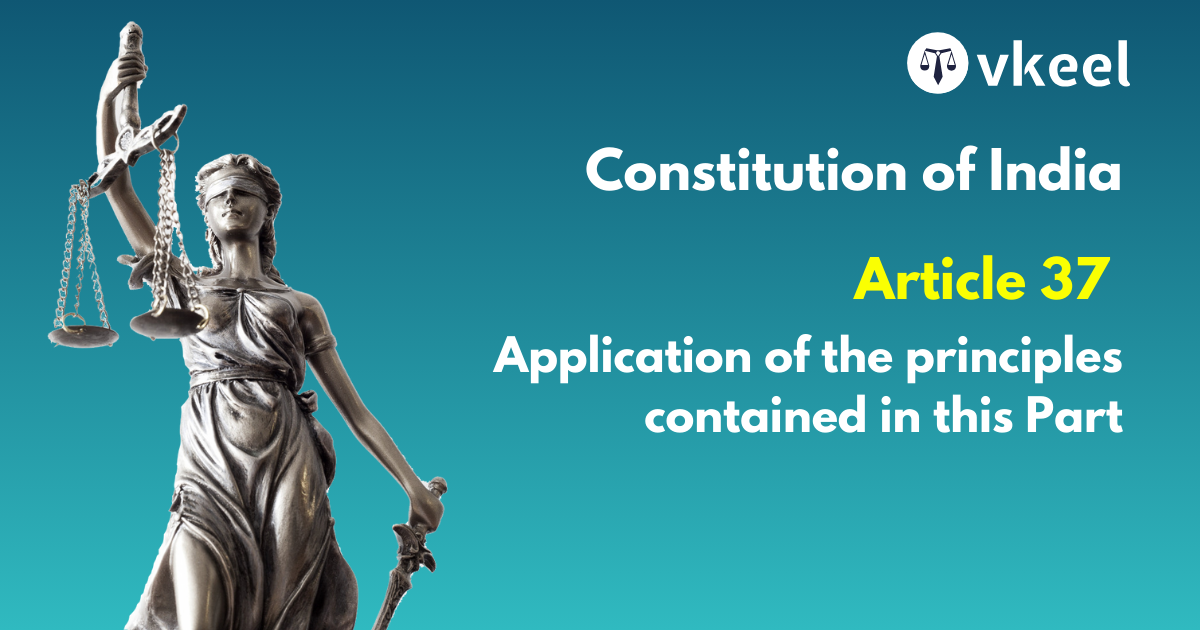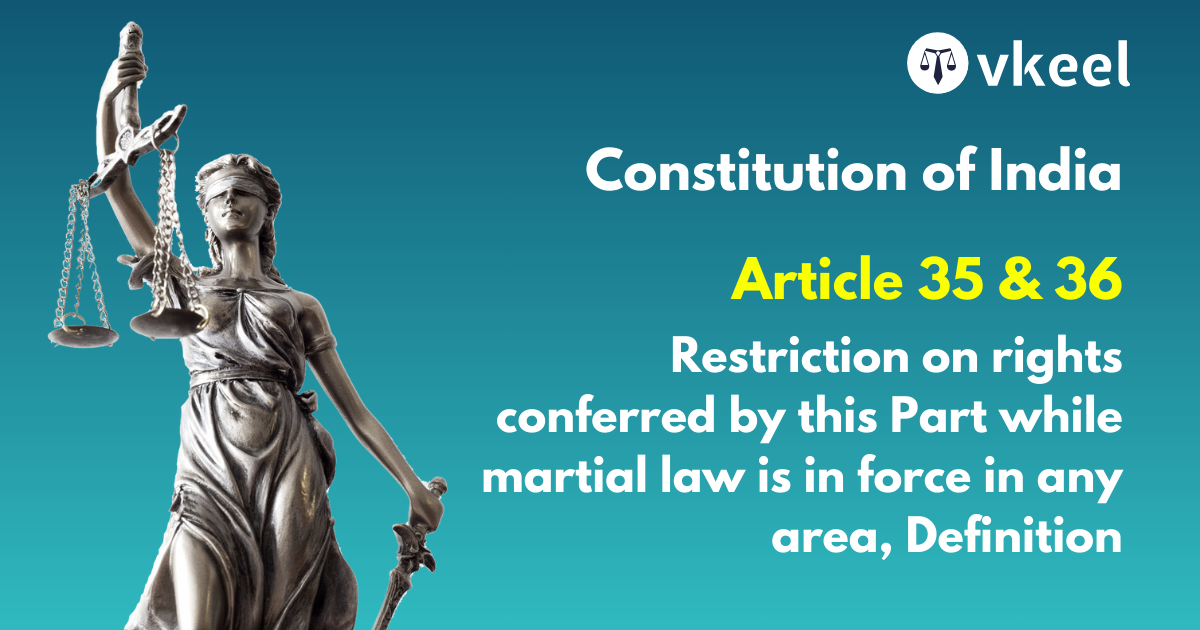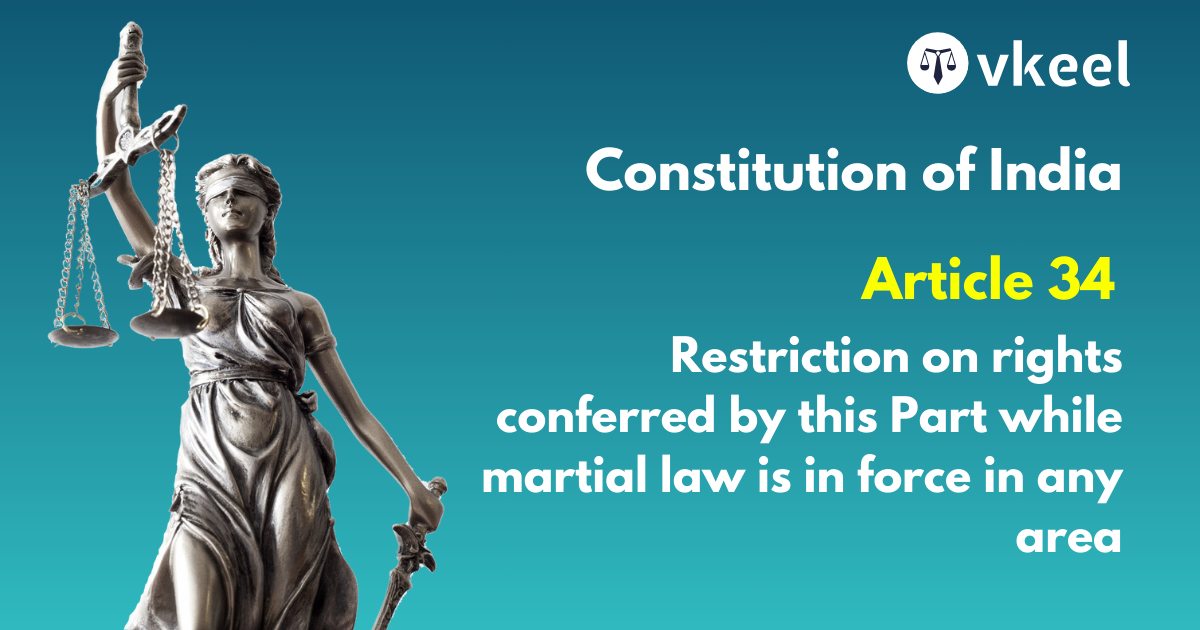Article 11 Parliament to regulate the right of Citizenship by law
By Vanshika Saini
Table of Contents
Introduction
Initially from the stages of drafting of the provisions it was held that matters regarding the acquisition and termination of Citizenship should be left with Parliament to be regulated by Law.
The only difference between the Union Constitution Committee formulation and the earlier drafts was that of substituting the word ‘ federation for the word ‘union’
The Constitution Of India only laid down the law in context of the Citizenship At the commencement of the Constitution, Not only did it provide for the acquisition and termination of Indian Citizenship. It was left to the Parliament to regulate the right of Citizenship by law.
Entry 17 in the Union List of the Seventh Schedule of the Constitution provided the Union Parliament possessing the legislative power in the states of citizenship, aliens and naturalization.
Article 11
Parliament to regulate the right of citizenship by law.—Nothing in the foregoing provisions of this Part shall derogate from the power of Parliament to make any provision with respect to the acquisition and termination of citizenship and all other matters relating to citizenship.
Judicial Interpretation
In Mohd. Ayub Khan vs Commissioner of Police, Madras in terms of Powers of Parliament the apex court stated that ‘Power of Parliament to enact legislation to make provision with respect to the acquisition and termination of Citizenship is a matter of abundant caution affirmed by Article 11’
In Izhar Ahmad Khan vs Union of India, the Supreme Court upheld that ‘ it may prima facie sound somewhat surprising, but it is nevertheless true, that though thein citizens of India are guaranteed the fundamental rights specified in Article 19 of the Constitution, the status of Citizenship on which the existence or continuance on which the existence or continuance of the said rights rests is itself not one of the fundamental rights guaranteed to anyone’
‘In Hari Shankar vs Union of India, the apex court ruled that ‘In Hari Shankar vs Union of India, the apex court ruled that ‘ the existence of such facts as would entitle the applicant to issuance of such certificate and that application for the issuance of certificate was in order, the presumption exists though it is rebuttable and not conclusive.
Conclusion
It is significant to remember that the Citizenship provisions in the Constitution and the law it was keeping was with the aim of building an integrated and consolidated Indian nation. All citizens irrespective of the states they were born in have the same rights.
Article 11 empowered Parliament to make provisions in respect of Citizenship and matters related to Citizenship. The Citizenship Act 1955, discussed several provisions in context of acquisition and termination of Citizenship of India.
Disclaimer:
The information provided in the article is for general informational purposes only, and is not intended to constitute legal advice or to be relied upon as a substitute for legal advice. Furthermore, any information contained in the article is not guaranteed to be current, complete or accurate. If you require legal advice or representation, you should contact an attorney or law firm directly. We are not responsible for any damages resulting from any reliance on the content of this website.

